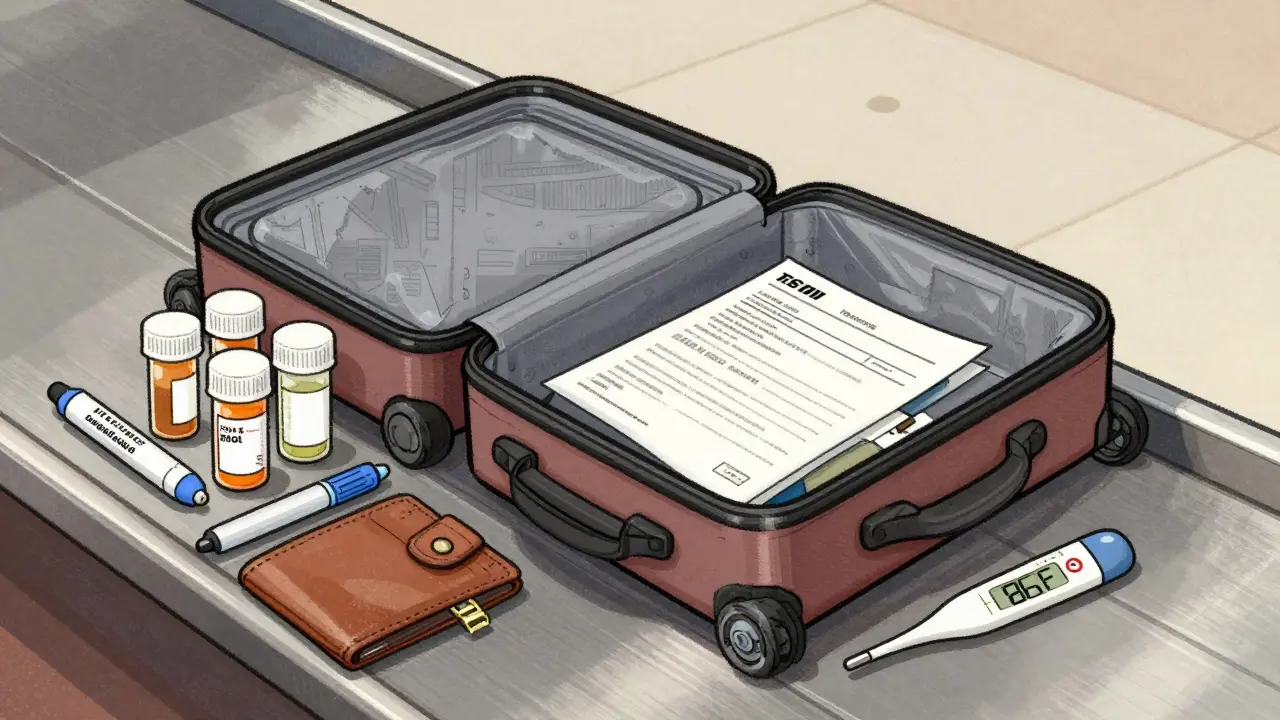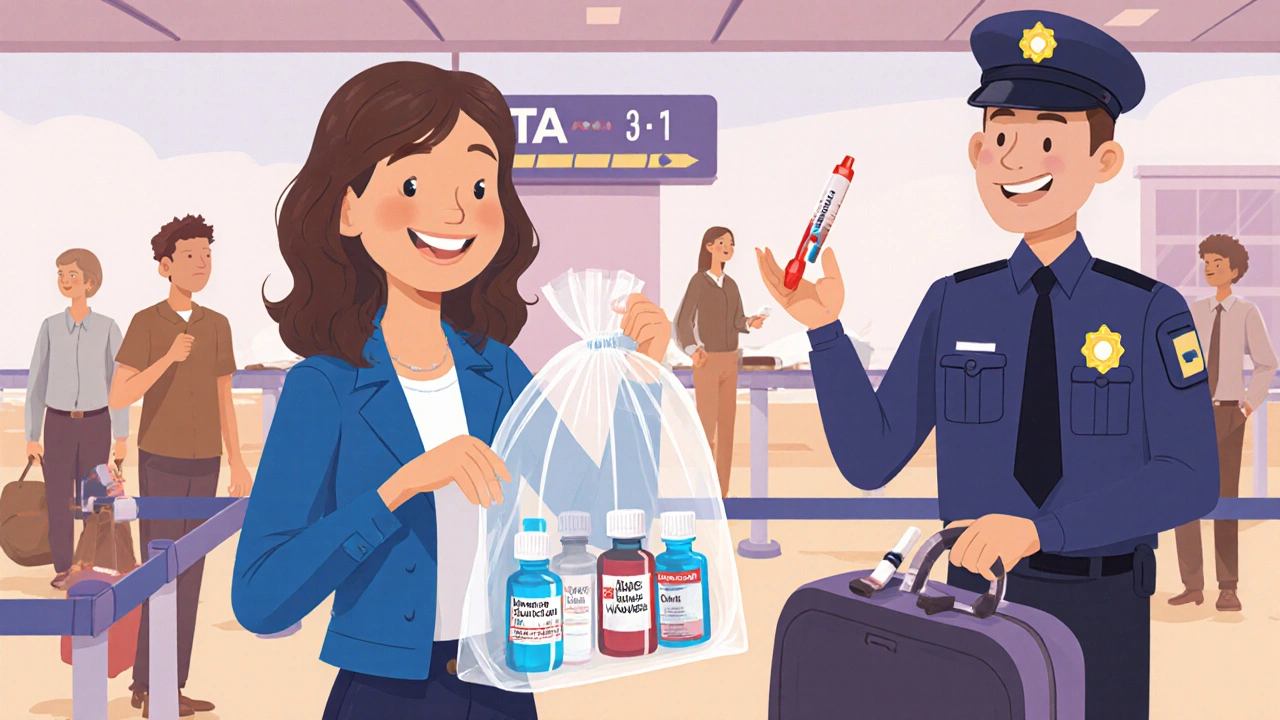When you're flying with TSA medication rules, the set of guidelines enforced by the U.S. Transportation Security Administration for carrying drugs through airport security. Also known as air travel drug regulations, these rules help keep passengers safe while making sure you don’t get stuck at security for carrying your daily pills. You don’t need to declare your medications unless asked, but how you pack them matters more than you think.
Most prescription and over-the-counter pills are fine in your carry-on or checked bag. The TSA doesn’t require original bottles, but keeping them labeled helps avoid delays. If you’re carrying liquid meds—like cough syrup, insulin, or eye drops—they’re exempt from the 3.4-ounce liquid rule. You can bring more than 100ml, but you must tell the officer at the checkpoint. Same goes for injectables: syringes, pen injectors, and even glucose monitors are allowed. Just be ready to explain what they are. Many people forget that medical devices like nebulizers or oxygen tanks also fall under these rules, and you may need a doctor’s note if they’re large or unusual.
What trips people up? Illicit drugs, unmarked powders, and bulk supplements. The TSA isn’t a law enforcement agency, but if they spot something suspicious, they’ll call in local police. That’s why it’s smart to keep your meds in clearly labeled containers—even if it’s just a pill organizer with a printed list. If you’re traveling internationally, remember: TSA rules only apply in the U.S. Other countries have their own rules, and some medications legal here are banned abroad. Always check the destination country’s health ministry website before you go.
For people managing chronic conditions—like diabetes, epilepsy, or heart disease—these rules aren’t just convenient, they’re essential. Missing a dose because your meds got held up isn’t an option. That’s why the best practice is to pack extra in your carry-on, keep a copy of your prescription, and never check your only supply. You’ll also find plenty of real-world tips in the posts below: how to handle insulin on long flights, what to do if your pills get confiscated, and how to explain your meds to a tired TSA agent at 5 a.m. Whether you’re flying once a year or every week, knowing these rules saves stress, time, and maybe even your health.

Learn how to safely store medications while traveling, including temperature rules, TSA guidelines, insulin travel tips, and what to pack in your carry-on to avoid dangerous mishaps on the road.
read more
Learn how to fly with liquid medications without delays. TSA allows unlimited prescription liquids if properly labeled and declared. Follow these simple steps to clear security quickly and avoid common mistakes.
read more